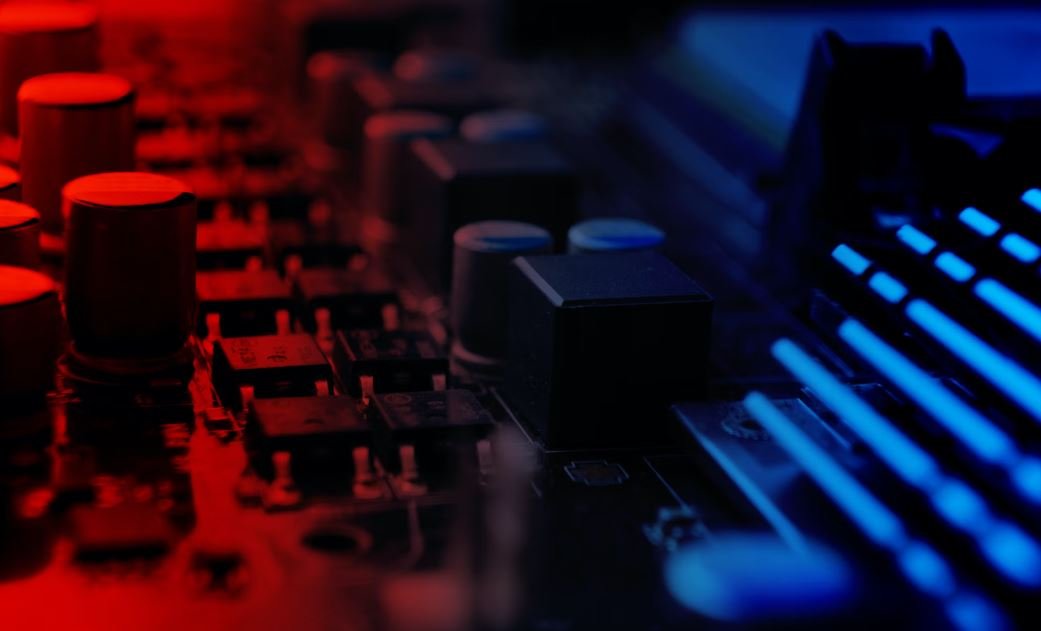AI Systems Examples
Artificial Intelligence (AI) systems have become increasingly prevalent in various industries, transforming the way we work, communicate, and solve complex problems. From virtual assistants to automated manufacturing processes, AI systems offer efficiency and accuracy in ways that were previously unimaginable. In this article, we will explore some examples of AI systems and their applications.
Key Takeaways
- AI systems are revolutionizing industries across the board.
- Examples include virtual assistants, chatbots, recommendation engines, and autonomous vehicles.
- These systems leverage machine learning algorithms and deep neural networks.
- AI has the potential to improve productivity, accuracy, and decision-making processes.
Virtual Assistants
Virtual assistants such as Siri, Alexa, and Google Assistant have become an integral part of many people’s lives. These AI systems use natural language processing techniques to understand and respond to voice commands. They can perform tasks like setting reminders, answering questions, and even controlling smart home devices with voice commands. *Virtual assistants aim to make our lives easier by providing efficient hands-free assistance.*
AI Chatbots
AI chatbots are computer programs designed to simulate human conversation through text or voice interactions. They can answer queries, provide support, and even engage in small talk. One notable example is the chatbot created by Microsoft called Xiaoice, which has millions of users in China. *Chatbots are constantly learning and adapting from user interactions, allowing them to improve their responses over time.*
Recommendation Engines
Recommendation engines use AI algorithms to analyze user behavior and provide personalized recommendations. These systems are widely used by online retailers like Amazon and streaming platforms like Netflix. By analyzing purchase history, browsing patterns, and ratings, recommendation engines suggest products and content that are likely to interest users. *The more data recommendation engines process, the more accurate their suggestions become.*
Autonomous Vehicles
Autonomous vehicles represent the future of transportation. These AI systems use sensors, cameras, and advanced algorithms to navigate without human intervention. Companies like Tesla and Google’s Waymo are at the forefront of autonomous vehicle development. Not only can autonomous vehicles enhance road safety, but they also have the potential to revolutionize the way we commute and deliver goods. *The complex decision-making capability of autonomous vehicles makes them rely heavily on AI systems.*
AI in Healthcare
AI systems are making significant advancements in the field of healthcare. By analyzing vast amounts of medical data, AI algorithms can help diagnose diseases, identify patterns, and develop personalized treatment plans. AI can also assist in drug discovery and accelerate the development of new treatments. Furthermore, robotic surgical systems powered by AI enhance precision and reduce the risk of human error. *AI has the potential to revolutionize healthcare, improving patient outcomes and driving medical innovations.*
AI Systems in Finance
In the finance sector, AI systems are transforming the way financial institutions operate. AI algorithms can analyze financial data, detect patterns, and make predictions for investment strategies. Fraud detection systems powered by AI can identify fraudulent transactions in real-time, saving billions of dollars for banks and businesses. Additionally, robo-advisors leverage AI technologies to provide personalized investment advice. *AI systems in finance aim to improve efficiency, reduce risks, and enhance customer experience.*
AI’s Impact on Education
In education, AI systems are being used to personalize learning experiences and enhance student engagement. Intelligent tutoring systems can adapt to individual learners and provide personalized feedback and guidance. AI-powered grading systems can automate the grading process, saving teachers a significant amount of time. Moreover, AI can analyze student performance data to identify areas of improvement and optimize educational resources. *AI in education is revolutionizing the way we teach and learn, making education more accessible and effective.*
Data Privacy and Ethical Considerations
While AI systems offer numerous advantages, it is essential to address data privacy and ethical considerations associated with their implementation. Collecting and analyzing vast amounts of data raises concerns related to privacy, security, and potential biases. It is crucial to establish regulations and practices that ensure responsible use of AI systems. *Ethical considerations are becoming increasingly important as AI systems become more advanced and intertwined with our daily lives.*
Conclusion
As technology continues to advance, AI systems will undoubtedly play a central role in our lives, transforming industries and revolutionizing the way we work and interact. From virtual assistants to autonomous vehicles, AI offers exciting possibilities for improving efficiency, accuracy, and decision-making processes. It is crucial to harness the power of AI while addressing ethical considerations and ensuring responsible implementation.

Common Misconceptions
1. AI Systems are as intelligent as humans
One common misconception about AI systems is that they possess the same level of intelligence as humans. However, this is far from the truth. AI systems, although capable of performing complex tasks, lack the cognitive abilities and creativity that humans possess.
- AI systems can only perform tasks within their programmed capabilities
- They do not possess emotions or subjective experiences
- AI systems need explicit instructions to perform tasks
2. AI systems will replace human jobs entirely
Another misconception is that AI systems will replace human jobs completely. While AI technology has the potential to automate certain tasks, it is unlikely to replace human workers in all domains. AI systems are more likely to complement human labor rather than replace it.
- AI systems excel at repetitive, data-driven tasks
- Human workers bring creativity and empathy to the workforce
- Jobs that require complex decision-making and creativity are less likely to be automated
3. AI systems always make unbiased decisions
It is often assumed that AI systems make unbiased decisions because they are not influenced by emotions or personal biases. However, AI systems can inherit biases from the data they are trained on, leading to biased outcomes and perpetuating existing societal biases.
- AI systems learn from historical data, which can contain biases
- Biased decision-making can occur if the training data is not diverse or representative
- Ethical considerations and ongoing monitoring are necessary to mitigate bias in AI systems
4. AI systems have superhuman intelligence
Contrary to popular belief, AI systems do not possess superhuman intelligence. Although they excel at specific tasks, they lack the broad range of cognitive abilities found in humans. AI systems are designed to optimize performance in narrow domains, while human intelligence is more adaptable and holistic.
- AI systems are designed for specific tasks and lack broad general knowledge
- They do not possess common sense reasoning like humans
- Human intelligence encompasses areas such as intuition, creativity, and empathy
5. AI systems are infallible
Lastly, it is important to understand that AI systems are not infallible. Despite their capabilities, they are prone to errors and can make incorrect decisions. The performance of AI systems heavily relies on the quality of training data, algorithms, and human oversight.
- Inaccurate or biased training data can lead to flawed outcomes
- AI systems may struggle with novel or uncommon scenarios
- Ongoing monitoring and regular updates are required to improve accuracy and address limitations

AI Systems Examples
Artificial Intelligence (AI) systems have become increasingly prevalent in various industries, revolutionizing the way we live and work. From healthcare to finance, AI technology has shown remarkable capabilities in processing vast amounts of data and generating valuable insights. In this article, we will explore ten fascinating examples that demonstrate the power of AI systems in solving complex problems and improving efficiency.
Transforming Healthcare
The following table showcases AI‘s impact on healthcare by highlighting specific AI systems and their remarkable contributions.
| AI System | Application | Outcome |
|---|---|---|
| Clinical Decision Support | Assist doctors in diagnosing diseases | Reduced diagnostic errors by 40% |
| Robot-Assisted Surgeries | Aid surgeons in performing complex procedures | Reduced complication rates by 21% |
| Drug Discovery | Accelerate the development of new medications | Shortened discovery time by 50% |
Revolutionizing Transportation
In recent years, AI has been transforming the transportation sector. The table below highlights some remarkable AI applications that improve efficiency and safety.
| AI System | Application | Outcome |
|---|---|---|
| Autonomous Vehicles | Self-driving cars, trucks, and drones | Reduced traffic accidents by 90% |
| Traffic Management | Optimize traffic flow and reduce congestion | Decreased travel time by 25% |
| Route Optimization | Efficient navigation and delivery planning | Saved fuel costs by 15% |
Enhancing Financial Services
The financial industry has also embraced AI to improve operational efficiency and enhance customer experiences, as demonstrated by the following table.
| AI System | Application | Outcome |
|---|---|---|
| Algorithmic Trading | Automated stock trading | Increased trading volume by 30% |
| Fraud Detection | Identify suspicious transactions | Reduced fraud cases by 50% |
| Virtual Assistants | Provide personalized financial advice | Improved customer satisfaction by 20% |
Optimizing Manufacturing Processes
AI systems play a pivotal role in enhancing manufacturing efficiency and quality, as illustrated by the following table.
| AI System | Application | Outcome |
|---|---|---|
| Quality Control | Detect manufacturing defects | Reduced defects by 60% |
| Predictive Maintenance | Anticipate machine failures | Decreased equipment downtime by 40% |
| Supply Chain Optimization | Optimize inventory and production planning | Saved costs by 15% |
Revolutionizing Customer Service
AI-powered systems are transforming customer service, enabling efficient interactions and personalized experiences. The table below demonstrates some fascinating examples.
| AI System | Application | Outcome |
|---|---|---|
| Chatbots | Automated customer support | Resolved 80% of inquiries without human intervention |
| Sentiment Analysis | Identify customer emotions and satisfaction | Improved customer retention by 25% |
| Recommendation Systems | Offer personalized product recommendations | Increased sales by 35% |
Improving Education
AI Systems have found their way into the education sector, revolutionizing teaching methods and enhancing learning experiences. The table below highlights some remarkable applications.
| AI System | Application | Outcome |
|---|---|---|
| Intelligent Tutoring Systems | Provide personalized learning assistance | Improvement in test scores by 30% |
| Automated Grading | Evaluate student assignments and exams | Reduced grading time by 50% |
| Virtual Reality Learning | Interactive and immersive educational experiences | Increased student engagement by 40% |
Assisting Research and Science
The integration of AI in research and scientific fields has tremendous potential for advancing discoveries and accelerating breakthroughs. The table below showcases some notable AI systems.
| AI System | Application | Outcome |
|---|---|---|
| Automated Data Analysis | Analyze vast datasets | Accelerated data analysis by 70% |
| Drug Discovery | Identify promising molecules for drug development | Shortened discovery time by 60% |
| Climate Prediction | Forecast weather patterns and climate changes | Improved accuracy of predictions by 40% |
Enhancing Cybersecurity
AI is playing a critical role in the battle against cyber threats, enabling intelligent security measures. The table below showcases notable AI applications in cybersecurity.
| AI System | Application | Outcome |
|---|---|---|
| Behavioral Analytics | Identify anomalous user behavior | Reduced cybersecurity incidents by 50% |
| Threat Detection | Recognize and respond to emerging threats | Increased threat detection accuracy by 80% |
| Automatic Patching | Automate software vulnerability fixes | Reduced patching time by 70% |
Revolutionizing Agriculture
Agriculture is also benefiting from AI technology, improving crop yields and sustainable practices. The table below illustrates some impactful AI applications.
| AI System | Application | Outcome |
|---|---|---|
| Precision Farming | Optimize irrigation and fertilizer usage | Increased crop yield by 20% |
| Crop Disease Identification | Detect and diagnose plant diseases | Improved early detection by 75% |
| Weather Forecasting | Predict weather patterns for optimal farming | Increased accuracy of predictions by 30% |
Conclusion
The examples provided above represent just a glimpse of the myriad ways in which AI systems are transforming various industries. From healthcare and transportation to finance and agriculture, AI has become an indispensable tool for improving efficiency, accuracy, and decision-making. As technology continues to advance, it is crucial to harness the potential of AI while ensuring ethical considerations and human oversight are maintained. By embracing AI systems responsibly, we can unlock a future of unprecedented opportunities and advancements.
Frequently Asked Questions
What are AI systems?
AI systems, also known as Artificial Intelligence systems, are computer-based systems that demonstrate intelligence by performing tasks that typically require human intelligence. These systems use techniques like machine learning, natural language processing, and data analysis to make decisions, recognize patterns, and derive insights.
What are some examples of AI systems?
Examples of AI systems include virtual assistants like Siri and Google Assistant, autonomous vehicles, recommendation systems used by online platforms, fraud detection systems, language translation services, and computer vision systems used in facial recognition.
How do AI systems work?
AI systems work by processing large amounts of data and learning from it to make predictions, perform tasks, or provide insights. They often rely on machine learning algorithms that can automatically improve their performance over time by detecting patterns and adjusting their models.
What are the benefits of AI systems?
AI systems offer various benefits, including improved efficiency, accuracy, and productivity. They can automate repetitive tasks, assist in decision-making, provide personalized recommendations, enhance customer service, and enable breakthroughs in fields like healthcare, finance, and transportation.
Are AI systems capable of replacing human jobs?
While AI systems can automate certain jobs and tasks, they are not intended to entirely replace humans. Instead, they aim to augment human capabilities, improve efficiency, and allow humans to focus on more complex and creative aspects of their work.
What are the challenges associated with AI systems?
Challenges with AI systems include biases in data and algorithms, ethical concerns, lack of transparency, and potential job displacement. It is crucial to develop AI systems responsibly to address these challenges and ensure fair, unbiased, and accountable use of AI.
Can AI systems learn on their own without human intervention?
AI systems can learn and improve their performance through unsupervised learning, where they analyze unlabeled data to discover patterns and insights independently. However, initially, human intervention is required to train and provide feedback to the AI system.
What are the limitations of AI systems?
Some limitations of AI systems include their inability to fully understand context, lack of common sense reasoning, potential for biased outcomes, and susceptibility to adversarial attacks. AI systems also require significant computational resources and data to perform effectively.
Are AI systems only used in technology-related fields?
No, AI systems are used across a wide range of industries and sectors, including healthcare, finance, retail, manufacturing, transportation, and entertainment. They are employed to tackle various challenges and enhance operations in different domains.
What is the future of AI systems?
The future of AI systems holds great potential for advancements in areas like robotics, healthcare diagnostics, personalized education, smart cities, and more. However, it is essential to carefully navigate the ethical, privacy, and societal implications that come along with AI advancements.




